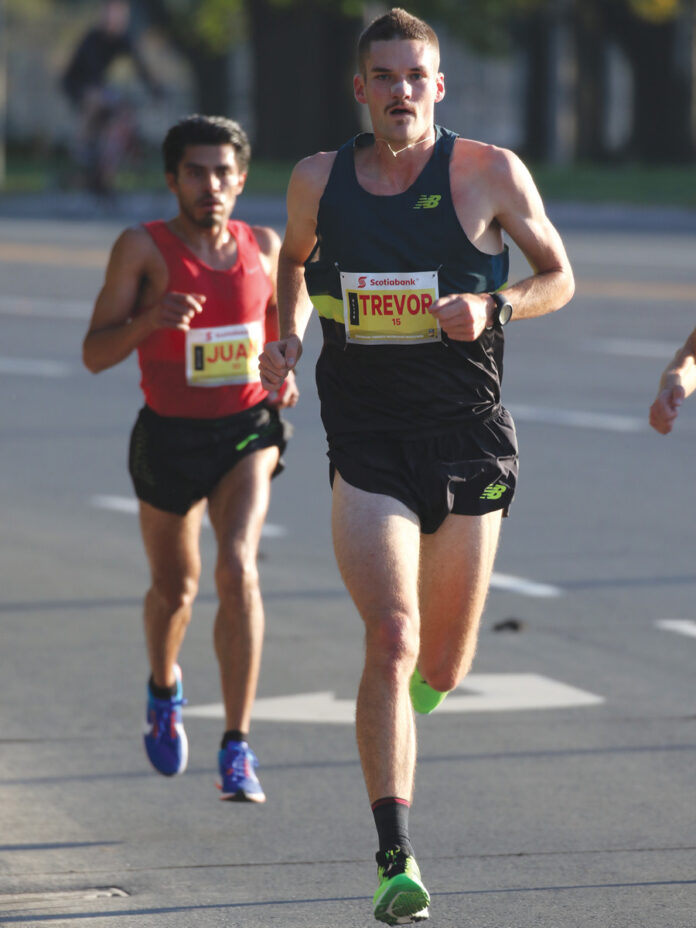
Everyone has a race story. There are the explosive moments in the porta potty before the race starts, vomiting roadside from pushing too hard, the time you just missed getting a personal best or the first time you met a new goal. But what about the races that didn’t happen for one reason or another?
In hindsight, these tales are often comical. But, missing a race you’ve spent months preparing for is heartbreaking at the time. How do you proceed psychologically and physically from there?
In February 2018, Calgary marathoner Trevor Hofbauer was training in Iten, Kenya when he was forced to run up a mound of dirt to avoid a feisty herd of cattle. He sprained his ankle and missed the Prague Marathon.
Former elite-level runner Jeremy Deere, earned an unfortunate race story at the 2008 New York City Marathon. A dish of lasagna eaten the night before the race gave him food poisoning. He threw up five times while crossing the Queensboro Bridge and then walked off the course. Food poisoning struck him again at the 2015 Paris Marathon.
“The NYC Marathon was particularly upsetting because I’d trained extremely hard, thinking it might be my last chance at running a solid marathon time with the busyness of life and kids and my age starting to catch up with me,” recalls Deere, 44.
If you miss a long race like a marathon, and decide to give it another shot in the next while, allow for a recovery period, as if you’d actually run and completed the race. Then set a new goal and build to it, advises Deere, who coaches running clinics out of his Strides Running Store in Calgary. For shorter races, he recommends allowing one down week, followed by a week or two of build-up to race again within a month.
Six months after missing Prague, Hofbauer was in California for the Monterey Bay Half Moon Marathon when the race was cancelled due to wildfire smoke.
“This lost opportunity is a small grieving process,” says Danelle Kabush, a mental performance consultant at the Canadian Sport Institute Pacific. “So give yourself time to sulk and process the emotions.”
And then be proactive, she says, like a car’s GPS that gets detoured — reset and reroute.
Hofbauer says he observed different reactions after the race cancellation. Many runners donned their bibs and ran the course on race day. Others turned into junkies looking for the next possible race. Like American Taylor Kelly, who drove that night from Monterey Bay to San Francisco and then flew to Las Vegas to race the Rock ‘n’ Roll Half the next morning — and won! Hofbauer, and Deere, went on a short run and then let go of the race.
“I try to focus on my mental game,” says Hofbauer, 27, “so I took away the positives from the training block leading up to this moment that didn’t happen — good workouts, long runs and interim races I was proud of.”
The loss of lives and homes caused by the fires also threw the cancelled race into perspective.
Other setbacks, within the realm of your control, can be viewed as opportunities to tweak your planning for next time, suggests Kabush; arriving a day earlier, triple-checking your packing list (she once forgot her running shoes), or bringing your own food to prepare.
“I think the best advice is to enjoy the moment where you are,” says Hofbauer.















